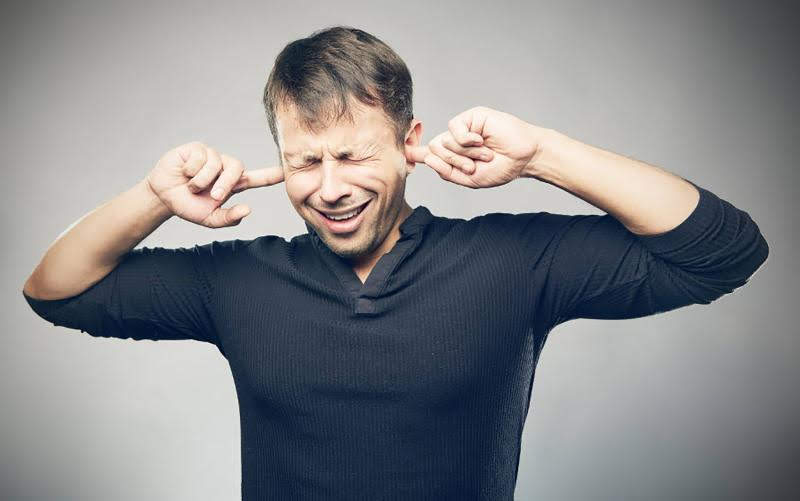We move through a world filled with sounds, and generally, most people never consider that the everyday sounds they hear can impact their hearing. However, since sensorineural hearing loss is often gradual, it is these everyday dangerous, loud sounds that are often the source of hearing loss.

When Sound Starts To Cause Hearing Loss
First off, let’s define decibel (dB)—simply put, decibels are a measurement of a sound’s power or its degree of loudness. So, as I refer to dB, know I am referring to the loudness of a sound.
Along with understanding what decibels are, it is important to know when decibel levels start to cause hearing loss. According to the National Institute on Deafness and Other Communication Disorders, hearing loss can begin with prolonged exposure to sounds that measure 85 dB. Generally, if the sounds are around the 85-90 dB level, it can take an hour to two hours of exposure to cause hearing loss.
However, as sound goes up in dB, the sound has a greater ability to damage your hearing more quickly. To help you gauge what everyday sounds may be endangering your hearing, below are some of the common sounds you may encounter.
Everyday Sounds Decibel Levels
Soft sounds
- Wind rustling leaves - 20 dB
- Quiet library - 30 dB
Moderate decibel levels
- Computer noises - 40 dB
- Refrigerator - 50 dB
- Regular conversation - 65 dB
Loud noises
- Traffic - 70 dB
- Vacuuming - 75 dB
Dangerous sound level threshold
- Semi-truck - 85 dB
- Hairdryer - 80-90 dB
- Food processor and blender - 80-90 dB
Damagingly loud sound
- Motorcycle passing or subway - 90 dB
- Power drill - 100 dB
- Chainsaw - 110 dB
- Max volume on MP3 players - 110 dB
Painful dB levels
- Thunderclap - 120 dB
- Emergency vehicles sirens - 120 dB
- Cheering stadium crowd - 130 dB
- Firearms - 140-160 dB
Once you pass the dangerous threshold on decibels, not only are you courting hearing loss but you may also develop tinnitus, which may take additional tinnitus counselling to overcome.
How To Protect Yourself From Hearing Damage
Now, you don’t have to just suffer through these sounds, even if they are ones that you encounter on a regular basis. There are various steps you can take to protect your hearing from being damaged.
Use Hearing Protection
Clearly, those who work in construction, landscaping, and other manual labour fields that operate machinery should take the time to use adequate hearing protection. But there are many other instances where utilizing hearing protection makes sense.
For instance, say you are doing some handy work around the house. If you are using things like saws, power drills, lawnmowers, or other power tools, then simply using disposable earplugs can help protect your hearing from the dangerous decibel levels.
Take Hearing Breaks
Prolonged exposure to loud decibel levels is a major way that sensorineural hearing loss occurs. To help lower your exposure rate, try to take hearing breaks.
An example of this would be when you are at a sporting event. While the high energy of an event is exciting, it is also very loud and can become painful to hear after a while. So, when you can, try to step out for about 5 minutes to give your hearing a break from too loud sounds.
Stand Up For Your Rights
When it comes to the workplace, you have the right to hearing protection. Depending on your country, there are different organizations that are in charge of enforcing the health and safety at your work.
For Americans, the Occupational Safety and Health Administration (OSHA) is the government agency that can be contacted for hearing safety enforcement if you are concerned that your work is not compliant.
Watch The Volume Levels
While it is noticeable when you turn up the volume on something like a TV since you can see the volume going up, it is far too easy to crank up the sound on a personal listening device without realizing how loud it has become.
As most MP3 players can reach 110 dB, extended listening—especially with earbuds—can lead to hearing loss fairly easily.
Get Your Hearing Tested For Hearing Loss
If you have had hearing damage, having a hearing evaluation to catch it early is important. With a hearing evaluation, you can enjoy in-depth hearing testing that can help detect hearing loss, the level of hearing loss, and your audiologist can recommend the right solutions for your hearing needs.
By proactively protecting your hearing and going in for hearing evaluations, you can stay on top of your hearing health and avoid the side-effects of hearing loss.





